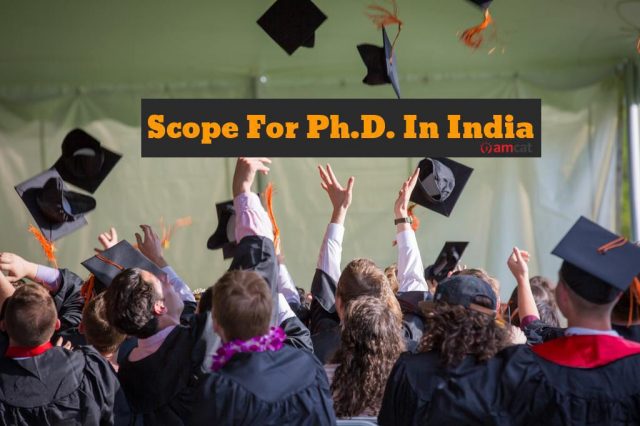
Did you know that Google was founded based on the Ph.D. work of Sergey Brin and Larry Page at the Stanford University? They invented an algorithm to rank pages automatically, that powered the initial Google search algorithm. In a different context, John Nash introduced the concept of Nash Equilibrium in his Ph.D. thesis. This revolutionized the field of game theory.
This is exactly what students get to do during their Ph.D. – discover new & unsolved questions and find answers to them, along with providing better solutions to the existing problems.
Traditionally, universities and research labs such as Microsoft Research, IBM Research, and TCS Innovation Labs hired PhDs as faculty and scientists. The scenario has now changed big time!
Due to the high impact of new technologies on business, companies such as Amazon, Flipkart, and LinkedIn hire computer science PhDs to work in artificial intelligence, software engineering and other areas in India. Biotechnology companies hire science PhDs to work on inventing new drugs. Startups such as Achira Labs, Videoken, and Strand Life Sciences also employ PhDs. To compete in the new world driven by innovation, companies in India have now started engaging the Ph.D. students.
A Ph.D. follows Masters (and sometimes directly after a Bachelors) and takes four to five years. Generally, one needs to take the GATE exam to qualify for Ph.D. in engineering and NET for Ph.D. in sciences. Institutions such as the IITs, IISERs, IISc and specialized institutions such as CMI, TIFR, IUCAA, and ISI offer the country’s most prestigious Ph.D. programs. Ph.D. students work with faculty advisors who help them navigate a problem, provide training in research methods and ultimately guide in writing research results.
Today, our premier institutions attract young faculty members with PhDs from the best institutions in the world. Mausam from the University of Washington, Partha Pratim Talukdar from the University of Pennsylvania, and Mythili Vuthukuri from MIT are some examples. If you decide to do a Ph.D., you could be working with one of these and many other great advisors at Indian institutions. The primary output of a Ph.D. student is research papers that disclose new results. These papers are published and presented at renowned journals and conferences. The premier institutions provide funding to attend at least one and sometimes two international conferences held outside India. This provides an opportunity to present one’s work to the global community, meet and hear from the best minds in one’s field.
Sometimes, getting the expenses reimbursed can be bureaucratic, but this is improving fast. The good news is that you get paid while pursuing a Ph.D. The typical stipend is Rs. 25,000-28,000 per month with sometimes free accommodation included. This is at par with what IT services companies pay to freshers. Fellowships and grants are provided by companies such as Google, TCS and Microsoft Research.
The PM Research Fellowship is available to meritorious students from specific institutions. They provide for an additional stipend, money for travel and resources. Jobs after a Ph.D. could be focused on teaching, research, or both. You could be writing an algorithm to better the product recommendations at Amazon, finding how diseases are linked to our genetic codes, how to prevent or treat Alzheimer’s, or discovering faraway stars, planets, and galaxies.
The salary paid by a premier institution to a beginning assistant professor is around ten lac rupees per annum. Salaries at research labs and top companies range anywhere from Rs. 15L-35L. And, also, Ph.D. students can become entrepreneurs to form companies based on their research work.
If you are an inventor or a discoverer, the research career is for you. Are you very curious? Do you like to find new solutions to existing problems? Are you a maker? If any of these are true, you should explore the research career. The way to do so is to expose yourself to technical and scientific papers. Other than searching stuff on Google, start using Google Scholar – this is a directory of research papers.
You can search for an algorithm or a circuit introduced in your class here and find out how it first came about, what was used before it, and what are new developments. Better still, if you wish to make a project or solve a new problem, you can look here for previous work done in the problem area.
When I was an undergraduate I wanted to make an algorithm that could automatically design oscillators – I looked through papers on genetic algorithms and automatic circuit design. By the end of my undergraduate course, I wrote four technical papers.
India has a growing demand for researchers. Great researchers are necessary to propel India to the forefront of innovation and compete well with the US and China. It is the career of the 21st century. Check out if it is for you – participate in creating new knowledge and building our Nation.
Note: An excerpt of author's views on "Ph.D. in India" has been published in The Hindu. Read it here. The writer is also the author of the book "Leading Science and Technology: India Next?"


























